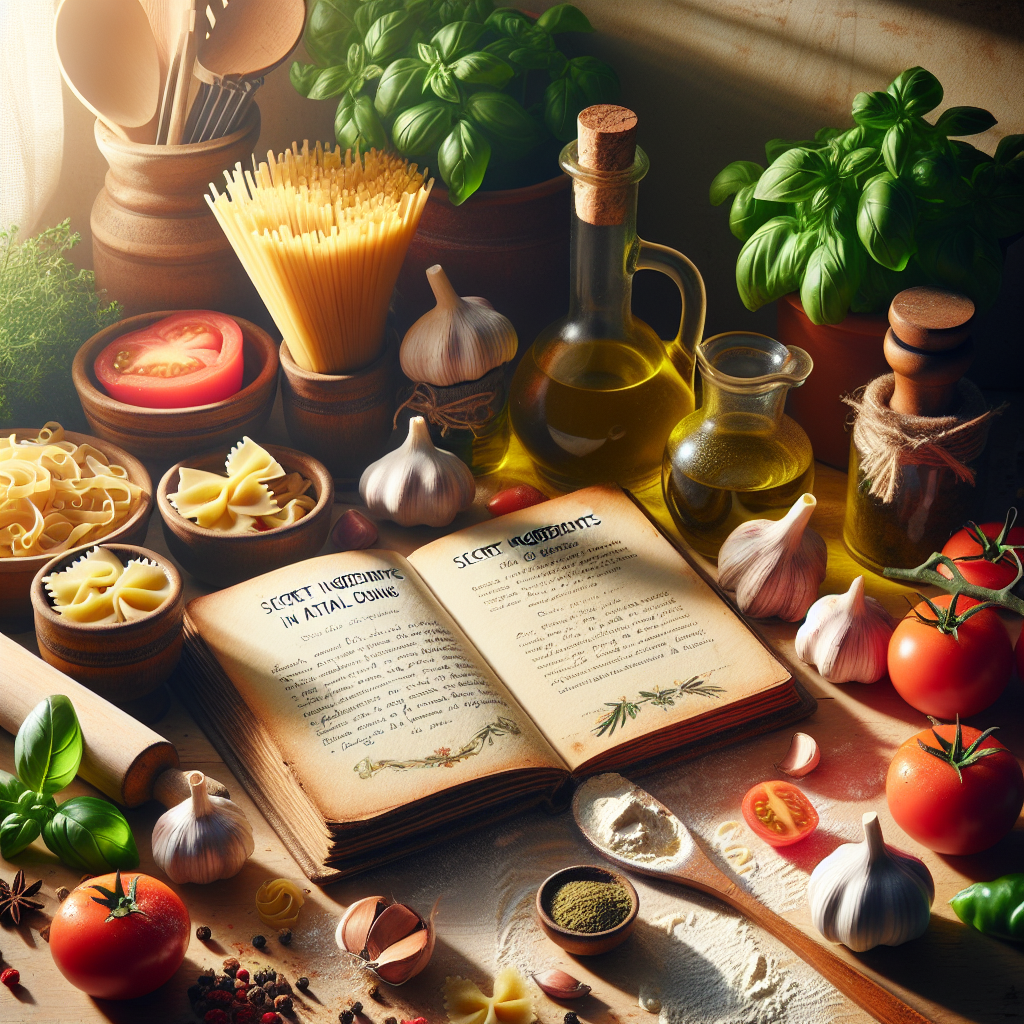“`html
Secret Ingredients in Authentic Italian Cooking
Authentic Italian cooking is renowned worldwide for its rich flavors, fresh ingredients, and simple yet sophisticated techniques. However, what truly sets traditional Italian dishes apart often lies in a few secret ingredients that elevate the taste and authenticity. Understanding these hidden gems is crucial for anyone looking to recreate genuine Italian flavors in their kitchen. In this article, we will explore these secret ingredients, why they matter, and how incorporating them can transform your culinary experience.
Main Content
The Role of Fresh and High-Quality Ingredients
A foundational element in authentic Italian cooking is the emphasis on fresh and high-quality produce. Beyond the staples like tomatoes, olive oil, and garlic, Italians often use specific herbs, cheeses, and cured meats that add depth and character. For instance, Parmigiano-Reggiano isn’t just a cheese; it’s a flavor booster that adds umami and complexity when grated over dishes. Similarly, the use of fresh basil rather than dried can make a noticeable difference in pesto or Caprese salads.
- Example: The subtle difference in flavor when using fresh San Marzano tomatoes versus regular canned tomatoes in sauces exemplifies attention to ingredient quality.
- How-to: Always source ingredients from trusted suppliers or local markets to ensure authenticity.
Secret Herbs and Seasonings That Enhance Flavor
While the basic Italian herb trio includes basil, oregano, and rosemary, authentic recipes frequently call for more nuanced seasonings like fennel seeds in sausage, a pinch of nutmeg in béchamel sauces, or bay leaves in slow-cooked ragù. These secret ingredients add layers of complexity that casual cooks often overlook.
- Analysis: These herbs and spices work synergistically, creating balance and harmony in flavor profiles.
- Application tips: Incorporate small amounts early in the cooking process to allow flavors to meld, but avoid overpowering the dish.
- Important note: Using fresh herbs whenever possible preserves aroma and potency, contrasting with dried versions that can be too intense or bland.
The Magic of Quality Olive Oil and Vinegars
Extra virgin olive oil is not just a cooking medium but a secret ingredient in itself. Italians use it generously, often drizzling it over finished dishes to add richness and aroma. Similarly, aged balsamic vinegar from Modena lends sweetness and acidity that brighten sauces, meats, and salads.
- Frequently Asked Question: Can olive oil substitutes maintain authentic flavor?
Answer: No, poor quality oils dilute the intended taste and can ruin the dish. - Tools & Resources: Seeking oils with Protected Designation of Origin (PDO) labels ensures quality and authenticity.
Conclusion
In summary, authentic Italian cooking’s secret ingredients go beyond the obvious and hinge on fresh, high-quality products, nuanced herbs, and superior condiments such as olive oil and vinegar. By understanding and applying these secrets, home cooks can recreate the vibrant and memorable flavors of Italy in their own kitchens. To deepen your culinary skills, explore more articles on traditional Italian recipes or consider booking a cooking class with Italian chefs.
Call to Action: Ready to master authentic Italian flavors? Subscribe to our newsletter for exclusive recipes and cooking tips or contact us for personalized culinary coaching!
“`





